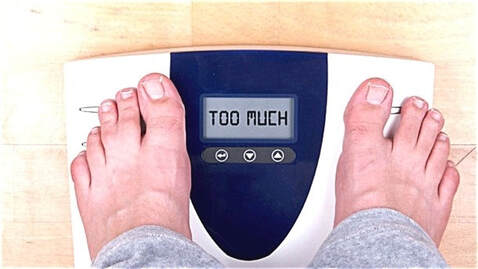 Late for Office! Sorry, No Time for Breakfast Late for Office! Sorry, No Time for Breakfast Blessed are those who get to eat three meals a day! The rise in food prices, stagnant income levels and increased expenses have created a situation wherein getting through the day with three nutritious and well-balanced meals has become a target to achieve for many. Contrarily, some of us take our breakfast, lunch and dinner for granted and worse, skip them altogether for many different reasons. Eating meals opens unto you the opportunity to take in adequate nutrients, bond with family, friends and colleagues and above all, replenish your energy stores for performing the day’s activities with renewed interest and stamina. Abstaining from eating a meal or two opens the door for overeating/binge eating during other meals which affects the health greatly in the long-term. Meal skipping is defined as the exclusion of one or more meals (breakfast, lunch or dinner) during the entire day either voluntarily or due to various other reasons. There are no second doubts that any of us tend to skip our meals sometime owing to unavoidable circumstances and this is quite acceptable. But failing to treat your mealtime importantly mostly is unacceptable, especially in young adults who are most popular for their higher rates of meal skipping compared to people belonging to other age groups. By young adults, I mean people belonging to the age group between 18 and 30 years who are in their prime years of life committing to studies, seeking higher rankings in employments, settling down in life committing to marriage or trying to accomplish their goals in life. To achieve any of these feats one needs abundant energy and motivation for which the food you eat remains at the top of the list. But our young generation (almost anywhere between 24 and 87%) simply lack the insight to fulfill this need. So, what do you think are the factors that prevent them from achieving the simple target of consuming three meals a day daily? Grassroot Differences in Meal Consumption Parents have always raised concerns over their offspring’s inappropriate eating patterns that includes low consumption of fruits and vegetables, high consumption of empty-calorie foods and their negligence towards eating all three meals of the day, especially breakfast. Breakfast, the most important meal, is the one that’s hugely neglected by most-kid, young adult or elderly alike. Skipping breakfast regularly is associated with inadequate nutrition levels, decreased energy levels, missing vitamins and minerals and increased risk of obesity, markers of insulin resistance and cardio metabolic risk factors. Though skipping meals, especially in young adults, is a common scenario existing worldwide there have not been many researches finding correlates of this unhealthy eating behavior. This stage of life holds a critical place in the development of long-term health behavior and eating habits and, the increased existence of poor eating practices in this group makes it highly necessary for us to understand the correlates associated for better dietary modifications and public health interventions. A large-scale review accumulated 331 articles that contained data on meal skipping in young adults of which 141 articles were eligible and 35 studies were included in the review. These 35 studies were conducted in 15 different countries that included Unites States, Japan, Turkey, Nigeria, Korea, Ghana, Poland, China, Croatia, Egypt, Greece, India, Iraq, Saudi Arabia and UAE. Of the 35 studies, 17 of them mostly consisted of female participants, 10 had female candidates only, 6 consisted mainly of male participants, 1 had equal number of males and females while 1 did not report sex ratio. Results showed:
Sex: Sex was mentioned as an important correlate in 12 studies. While a greater number of males were seen to skip breakfast, lunch and dinner was missed more by females. Age: Skipping breakfast was prominently linked with age. Majority of the studies reported that individuals between 15 and 20 years predominantly skipped breakfast compared to those in the age group of 20-30 years. Ethnicity: 5 studies reported ethnicity association with skipping breakfast. Caucasian participants quite often skipped breakfast compared to Japanese, Koreans or African Americans. Also, few studies reported that Japanese participants did not miss out on lunch and dinner compared to Caucasians or Koreans. Menstrual Cycle: More individuals with an irregular menstrual cycle were likelier to skip breakfast compared to those having a regular menstrual cycle. Physical activity: This was directly associated with eating breakfast in many of the studies. Individuals who exercised for more than 200 minutes every week ate breakfast almost 6-7 days a week compared to those who exercised only for 150 minutes a week. Fatigue: More commonly a person experienced fatigue, greater was the frequency of meal skipping. Also, those who slept late nights such as 1.30 AM or so skipped their meal and this could be any meal of the day. Psychological wellbeing: This is an important correlate. Generally, people who are overweight or wish to lose weight tend to skip meals in order to lose weight. Frequent meal skipping was found in those who express depressive symptoms and who have a self-perception of being overweight. It was seen minimally in those who were mindful and had increased body satisfaction. Time: This was the strongest correlate mentioned in 9 of the 10 studies. Many students complained lack of time as an excuse for missing breakfast or any other meal. This implies that their prioritizations vary and a healthy eating behavior is down their priority list which makes them ignore it most of the times. Hunger, Weight Control, Money, Taste, Religion & Habit: These were mentioned as some of the critical correlates by many of the participants in the study. Rural/urban: People in rural areas missed meals more frequently than those in urban areas. Body Mass Index (BMI), Education, internet use, housing type and physical environment influence provided mixed results. Another study focused on young adults in Australia where 986 participants were recruited of which 611 of them were females. 578 participants qualified for the study of which 296 of them did not skip any meal. Of the rest, there were 57 (10%) who skipped any meal of the day, 87 (15%) who skipped breakfast, 72 (12%) who skipped lunch and 58 (10%) who skipped dinner. Most of them were around 23-25 years old, females, having a university degree, did not smoke and exercised regularly. Results showed that those who had a university degree had lower odds of meal skipping comparatively, lack of time was quoted as the predominant reason for skipping breakfast or lunch and also, those who were previous or current smokers skipped breakfast 10% more than the result of the study group. Quoting lack of time as a correlate has been a common factor that has been quoted in multiple studies across the world. This makes us wonder how much these individuals value the food they eat. Young age might give you the energy now but the impact of missing your meals is surely going to be a big blow on your quality of life later. Then, you would be at a point of no-return.  Skipping Meals to Lose Weight is Irrational Skipping Meals to Lose Weight is Irrational Another cross-sectional study showed that meal skipping was highest seen among overweight adolescents where breakfast was consumed by 53% nonoverweight youth, 48% moderately overweight youth and only 43% very overweight youth. Almost 19% of adults and 23% adolescents skipped meals to control weight increase. Most young adults reported meal skipping as a strategy for losing weight but they were the ones who consumed more of fats and sugars as well. It is required to accurately chart your meal plan to make it well-balanced and nutritious rather than skipping one meal and then overeating during the other. It is appreciable to be wise, eat regularly and stay healthy to have a good quality of life. Education, lack of time, weight consciousness and money might be strong indicators of missed out meals but in the end, you are a sum total of your actions. Failing to eat right and stay healthy will not only affect you but also the people around. References Correlates of skipping meals in young adults: https://www.ncbi.nlm.nih.gov/pmc/articles/PMC5133750/ Examining the correlates of skipping meals in young Australian adults: https://nutritionj.biomedcentral.com/articles/10.1186/s12937-019-0451-5 Risk factor for obesity: https://www.sciencedirect.com/topics/medicine-and-dentistry/meal-skipping Comments are closed.
|
AVOID FRAUD. EAT SMART+91 7846 800 800
|
- Home
- Written Testimonials
- Consult
- Clinics
- Blogs
-
Diet & Nutrition
- Diabetes Reversal
- IVF IUI not needed for PCOS PCOD Infertility
-
Medical Nutrition
>
-
Disease & Conditions
>
- Infertility | PCOS
- Diabetes Mellitus
- Cholesterol
- Hypothyroid
- Kidney Problems
- Hypertension
- Cardiovascular Diseases
- Liver Diseases
- Gastro intestinal disorder
- Cancer
- Metabolic Disorders
- Orthopedic Disorders
- Eating Disorders
- Dietary Recall
- Weight Record Filled By Clients
- Online Payment Transaction Details
- Online Clients Weight Check Form
- Our Program Package Service Charges
- Weight Record 2017 Clients
- Measurements sent by Clients
- Terms & Conditions Of Payment
- Thanks. Your Form is Submitted
- Video Testimonials
- Lifestyle & Wellness
- Lifestyle & Wellness Blog
- Allergy & Intolerance
- Weight Loss / Gain
- Weight Loss / Slimming Blog
-
Disease & Conditions
>
- Life Cycle Nutrition >
- Sports Nutrition >
- Integrity in Nutrition
- Knowledge Centre
© COPYRIGHT 2022. ALL RIGHTS RESERVED. FRST HEALTHCARE PVT LTD.
Dr. Nafeesa Imteyaz of First Eat Right clinic, is the Best Dietitian Nutritionist in Bangalore. Best Dietitian Nutritionist in Pune. Best Dietitian Nutritionist in Hyderabad. Best Dietitian Nutritionist in Chennai. Best Dietitian Nutritionist in Mumbai. Best Dietitian Nutritionist in Delhi. Best Dietitian Nutritionist in Kolkata.



